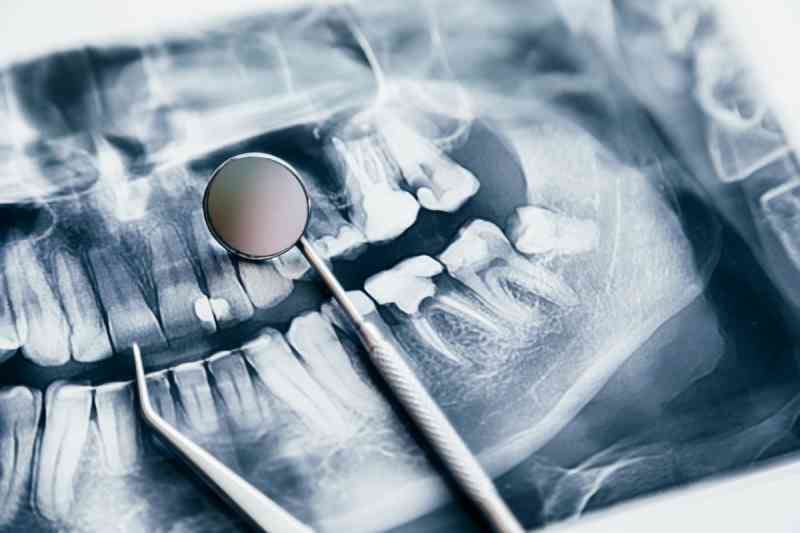Posted by Dr. Taner Cakmak on Fri, 24 Nov 2023
Post-tooth extraction, bone undergoes changes like resorption. Explore implant considerations and alternatives. Consult Dr. Taner Cakmak for personalized advice.

After a tooth extraction, the bone in the area where the tooth was removed undergoes a series of changes. These changes can affect the bone structure and density over time. Here's an overview of what typically happens:
- Blood Clot Formation: After the tooth is extracted, a blood clot forms in the socket to protect the underlying bone and nerves. This blood clot is a crucial part of the initial healing process.
- Bone Resorption (Shrinking): In the weeks and months following the extraction, the bone that used to surround the tooth socket may undergo a process called bone resorption or bone remodelling. This means that the bone may shrink or lose density in the area where the tooth was removed. This is a natural part of the healing process, but excessive bone loss can have implications for future dental procedures or tooth replacement options.
- Socket Healing: The socket left behind by the extracted tooth will gradually fill in with soft tissue and new bone. This process is known as socket healing.
- Ridge Preservation: To minimize bone loss after an extraction, dentists may perform ridge preservation techniques. This involves placing bone graft material into the socket to help maintain the bone volume. Ridge preservation can be especially important if you plan to have a dental implant in the future.
- Implant Considerations: If you're considering a dental implant to replace the extracted tooth, having a sufficient amount of healthy bone is crucial for implant stability. If too much bone is lost, additional bone grafting procedures may be necessary before implant placement.
It's important to follow your dentist's post-extraction care instructions carefully to promote proper healing and minimize complications. If you have concerns about bone loss or are considering tooth replacement options, discuss these with your dentist. They can provide guidance on preserving bone density and recommend suitable treatments if needed.
Should I Consider Implant After Tooth Extraction?
Whether to consider a dental implant after a tooth extraction depends on several factors, including your oral health, preferences, and the specific circumstances of the extraction. Dental implants are a popular and effective option for tooth replacement, but not everyone is a suitable candidate. Here are some considerations to help you decide if a dental implant is right for you:
- Overall Oral Health:
Dental implants require a healthy jawbone and gums. Your dentist will assess your oral health to determine if you have adequate bone density to support an implant. - Timing of the Implant:
In some cases, immediate implant placement is possible right after the extraction. In other situations, it's advisable to wait for the extraction site to heal before placing an implant. Your dentist will discuss the optimal timing based on your specific case. - Bone Health:
If there is significant bone loss after the extraction, your dentist may recommend bone grafting to build up the jawbone before placing an implant. - Patient Preferences:
Consider your preferences and priorities. Dental implants provide a durable and natural-looking solution for tooth replacement, but they also require a longer treatment process compared to other options. - Adjacent Teeth Condition:
The condition of the adjacent teeth plays a role. If the adjacent teeth are healthy, a dental implant may be a suitable option. If the adjacent teeth have issues, alternative options like bridges may be considered. - Financial Considerations:
Dental implants can be more costly than other tooth replacement options. Consider your budget and dental insurance coverage when making a decision. - Consultation with Your Dentist:
Schedule a consultation with your dentist or oral surgeon. They can assess your specific case, discuss your treatment options, and provide personalized recommendations based on your oral health and preferences. - Maintenance Commitment:
Dental implants require good oral hygiene and regular dental check-ups for long-term success. Consider your commitment to maintaining proper oral care.
Conclusion
It's important to have a thorough discussion with your dentist to weigh the pros and cons of dental implants in your specific situation. Other dental implants are not recommended or if you prefer an alternative, other options such as bridges or dentures may be considered for tooth replacement. Your dentist will work with you to determine the most suitable solution for your individual needs.
If you would like to make an appointment and discuss with Dr.Taner Cakmak what is the best option for you please call us 613-519-1400 or send an email [email protected] address.
Dentist Kanata
We will gladly answer any questions you may have.
Ask QuestionsKanata South Dental offers the ability to request your dentist appointments online. Schedule an appointment now!
Book OnlineBy filling out the New Patient Forms ahead of time you will save significant time on your visit.
New Patient FormsLatest News
Key Benefits of Dental Cleaning
Fri, 9 Jan 2026Key Benefits of Dental Cleaning (And What Happens If You Skip Them) Regular dental cleanings play an important role in keeping yo...
Continue Reading